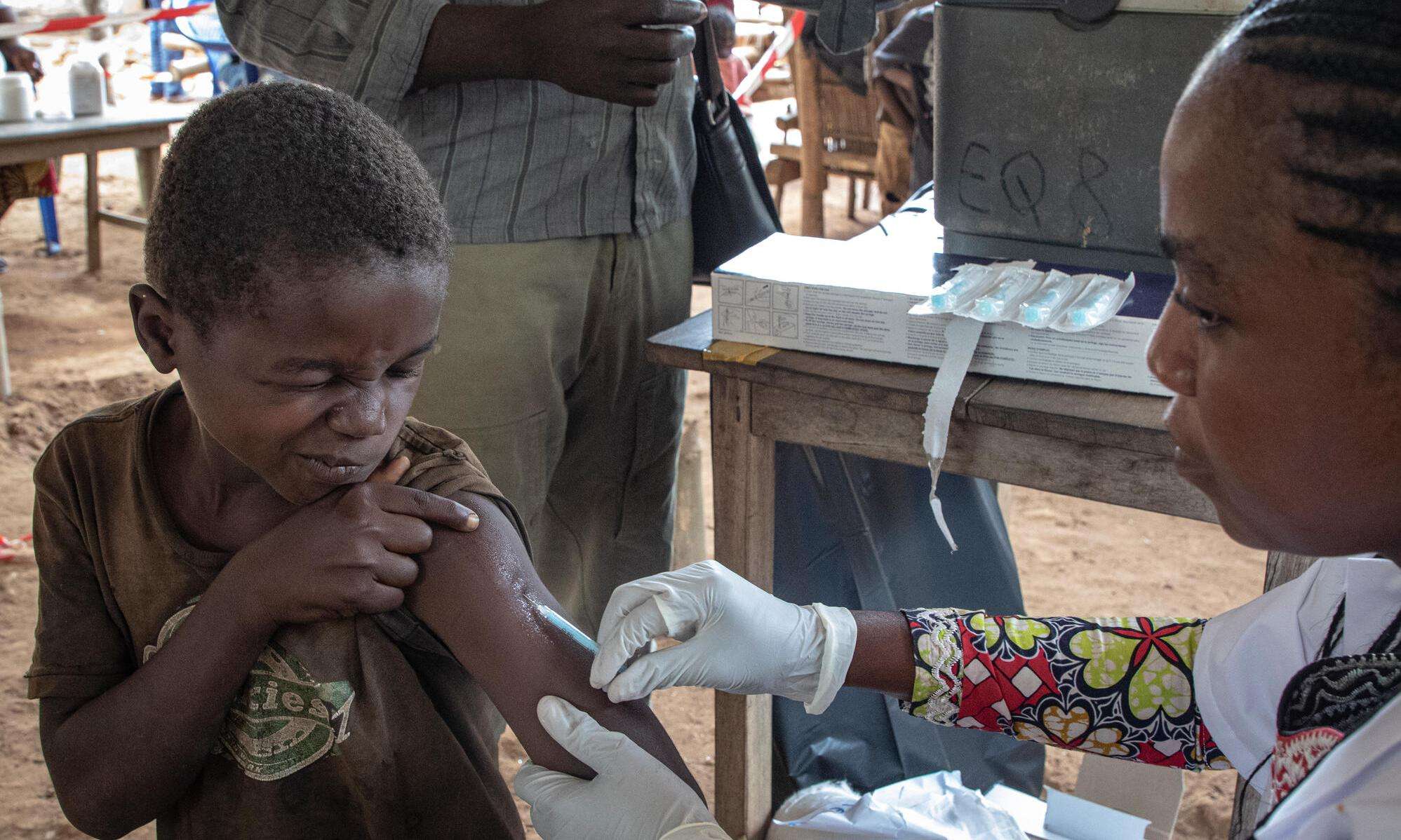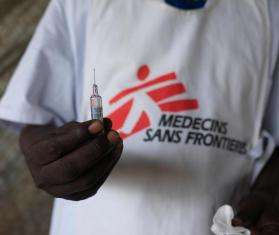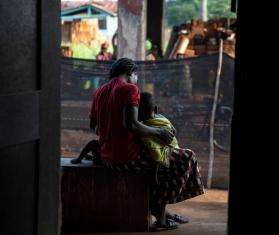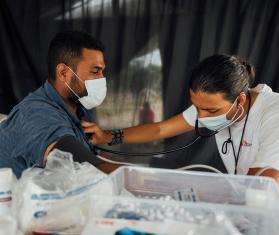It may sound strange to say that I’m obsessed with measles, but as the head of the medical unit at MSF-USA, understanding and containing disease outbreaks is a core part of my job.
When I joined MSF in 2002, my first assignment was at a therapeutic feeding center in Angola. It was the only time in my life that I witnessed such an extreme, horrible situation—children and adults dying needlessly from malnutrition and related complications. Twelve years later, I saw a similar situation in Katanga province in the Democratic Republic of Congo (DR Congo). This time, people were dying from complications related to measles.
What I saw in Angola and DR Congo is the reason I am still with MSF more than two decades later. My work focuses on measles, in particular, because it is one of the world’s most contagious diseases. In fact, a single person carrying the measles virus can infect almost all unvaccinated people around them. From the moment you detect a measles outbreak, you have just weeks to intervene before it can spiral out of control. This means that in contexts like refugee and displacement camps—where people live in close quarters—it can spread like wildfire.
Prioritizing measles prevention in health guidelines
People have been dying from measles for hundreds of years, but it wasn’t until recently that global health guidelines reflected the most effective strategies to prevent measles outbreaks before they get out of hand. MSF has been at the forefront of this shift. For example, past World Health Organization (WHO) guidelines did not recommend measles vaccination during an outbreak. But our experience at MSF suggested the contrary. We knew that vaccinating against measles could mean the difference between life and death for millions of people.
As a result of our research and advocacy, WHO updated its guidelines in 2009. This helped us partner with hard-hit countries like Niger, Chad, and DR Congo to carry out massive vaccination campaigns in which we were able to protect millions of people from measles. Prevention is especially important in countries with limited health care options for people who fall ill.
Measles vaccination is a marathon, not a sprint
It's not enough to only vaccinate people when there is an outbreak. Measles vaccination should be routine. As soon as the rate of routine vaccination declines—even by little— there’s potential for another outbreak. Regular vaccination is especially critical for kids and adults who have never been exposed to measles and don’t have any natural immunity. The disease can be especially deadly for children—even more so for children with immune systems weakened by malnutrition.
Unfortunately, measles is still killing people daily, even though the disease is easily preventable with a cheap, safe vaccine that has been available since the 1960s. In fact, more and more, we’re seeing high numbers of people with measles during seasons in which numbers used to be low. Recently, we’ve responded to outbreaks in Sudan, DR Congo, and Yemen.
These higher numbers and irregular patterns are partly due to interruptions in supply chains and patient visits to clinics. This has led to declining measles vaccination rates and a troubling resurgence in outbreaks over the past year. Additionally, COVID-19 created a severe interruption in measles efforts, which is thought to have contributed to the recent spike in cases worldwide. In short, the world has taken a step backward when we simply cannot afford to.
MSF is also supporting research and advocacy for expanded global access to routine vaccinations for children, as well as a new measles vaccine that does not require refrigeration. This would be a game-changer. It would allow us to reach vulnerable people in low-resource and remote regions where access to refrigeration is difficult to guarantee. That’s why our teams are constantly adapting and improving our response to save as many lives as possible. We must boost vaccination rates for people everywhere, not just those currently caught in measles outbreaks.




